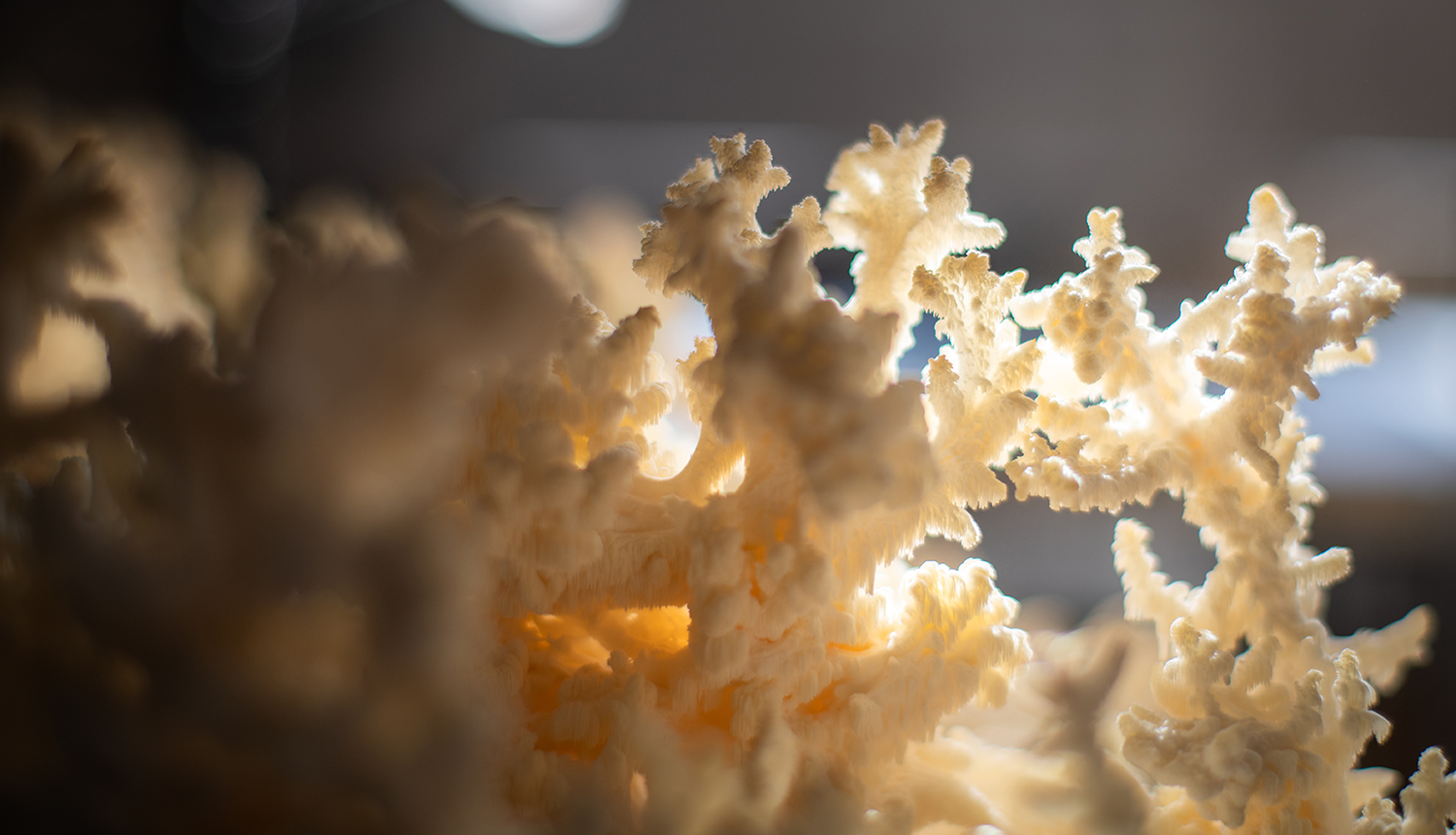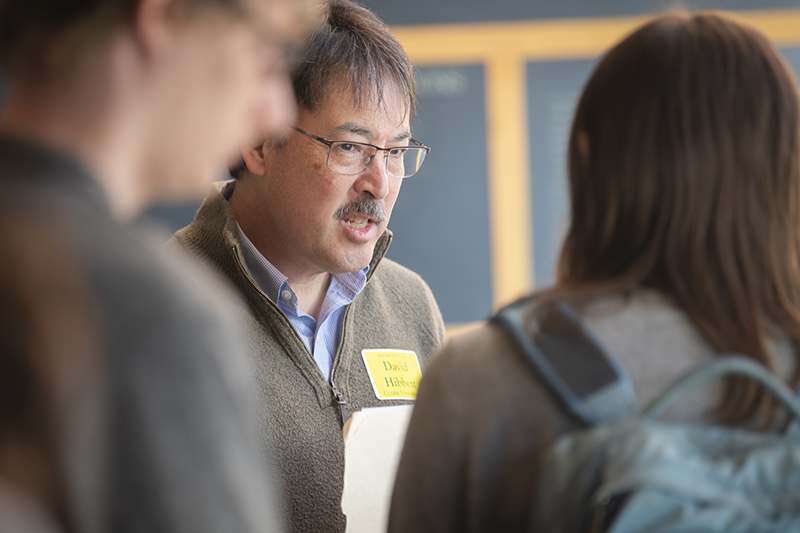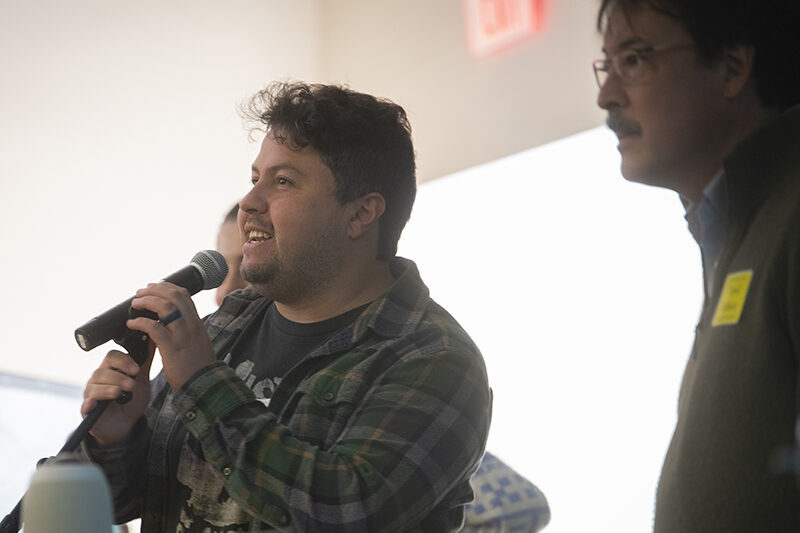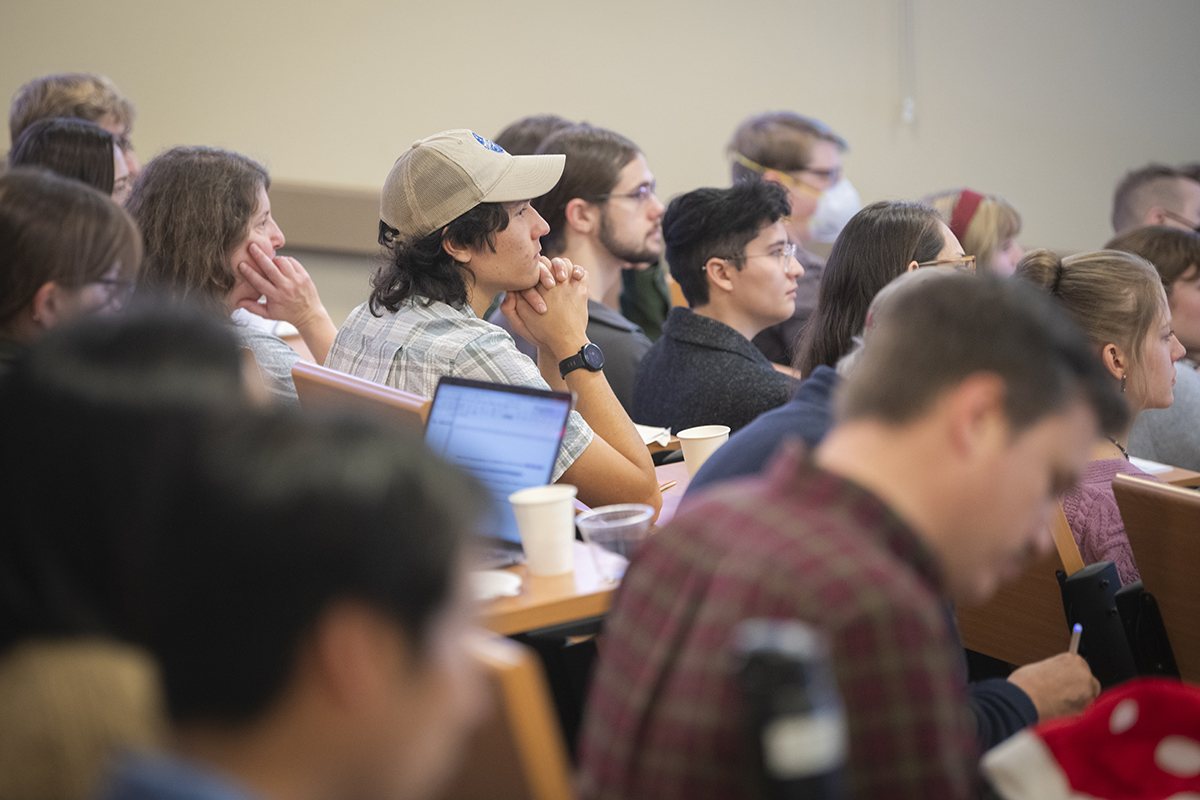Mycology conference mushrooms in popularity

To the uninitiated, a presentation titled “Uncovering molecular determinants of Aspergillus fumigatus strain-specific pathogenicity in ibrutinib-treated hosts” might seem daunting … at best. But to the members of MassMyco, it’s a siren’s song.
Last Saturday, more than 130 mycologists, a group devoted to sharing their expertise and indulging their passion for fungal biology, participated in the MassMyco conference. The event included a series of discussions, “lightning” talks, and poster displays that deepened understanding around the genomic complexities, evolutionary pathways, ecological systems, and assorted challenges of enhancing the awareness of mushrooms and other fungi among the wider community.
MassMyco has been meeting biennially since 2012, according to Professor David Hibbett, whose research and teaching have earned him renown in the mycology community and who co-convened the conference with fellow Clark mycologist Javier Tabima. The group’s very first meeting was held at Clark, and it has typically drawn between 50 and 60 participants. Hibbett attributes last week’s increased attendance — which necessitated a relocation to roomier space on campus — to a post-pandemic desire for in-person connection and a recent surge in hirings of fungal biologists at colleges throughout New England. Participants at last week’s events included visitors from universities across Massachusetts as well as from Cornell, Yale, Princeton, and even the Royal Botanic Garden Edinburgh, Scotland.


“We had non-academics as well, including someone from the Rhode Island Mycological Society and the person who runs the Mushroom Observer website, which is community-science oriented,” Hibbett notes. “We even had a historian who spoke about the rise of mycology at the turn of the last century.” The event also provided an opportunity for Clark students in the sciences to speak with professional mycologists and graduate students about their work and investigate careers with representatives from academia and industry during roundtable sessions held in the Shaich Family Alumni and Student Engagement Center.
Hibbett notes that in both academia and popular culture, the fascination with all things fungal — this “mushroom moment” — shows no sign of abating. “A lot of exciting science is going on around these organisms, and people are paying more attention now than they used to,” Hibbett says.
Hibbett and Tabima are currently conducting research as part of a $683,000 National Science Foundation grant that combines genomics and evolutionary biology to better understand the evolution of fungal forms. Much of the collecting work has been done locally, but the research team has also collected fungi from Illinois’ Chicago River. Last week, Hibbett delivered a lecture about his research at the 100th-anniversary celebration of the Farlow Herbarium at Harvard.
Apart from the grant, Hibbett, the Andrea B. and Peter D. Klein ’64 Professor, is considering doing fieldwork in Nepal and Vietnam, a trip that would be made possible by the generosity of the Kleins, who “provide important support of my lab and students.”
Hibbett notes that the MassMyco conference has gotten so popular that the prospect of holding it more frequently merits discussion.
“Honestly, we were shocked that this year’s conference was more than twice as large as previous gatherings,” he says. “For mycology, this was big.”



